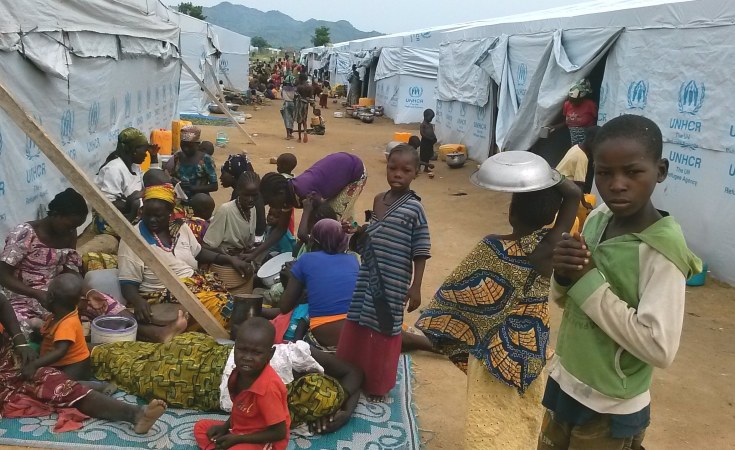
ABUJA, Nov 9 (NNN-ALLAFRICA) — About 1.2 million civilians are trapped and have been denied access to humanitarian aid and services in two local government areas now largely under the control of Boko Haram, Edward Kallon, UN Humanitarian Coordinator in Nigeria, said.
Kallon also revealed that humanitarian workers have, in the past 18 months, become major targets of the insurgents.
Delivering a keynote address at the ongoing International Civil-security summit in Maiduguri, the top UN official in Nigeria said the situation on the ground in the Northeast does not “give room for fiction.”
Noting that the decade-old Boko Haram crisis has claimed the lives of over 35,000 people in Adamawa, Borno, and Yobe states, Kallon stressed the urgent need for improved civil-military relationship in the ongoing war against insurgency.
He said it has become imperative to be overt about the situation facing the subregion.
“This crisis deserves our sustained attention and renewed commitment.”
He said stakeholders in the Northeast must build trust amongst themselves “in order to improve Civil-Security Cooperation.”
He noted that as Boko Haram insurgency clocks its 10th year, not less than seven million people are still in need of humanitarian assistance.
“Over the past ten years, over 35,000 people have lost their lives in this crisis. About 14,000 were civilians, but many others were members of the Armed Forces of Nigeria,” he said.
Kallon further lamented that the Boko Haram insurgency has also led to the death of many humanitarian workers.
“The crisis has also had a heavy toll on aid workers and the past year has marked a turning point in our response,” he said.
He lamented that aid workers, whether of the United Nations, international or national NGOs, or ministries, departments and agencies, “have increasingly become the target of attacks by non-state armed groups, criminals and petty thieves.”
“Ten aid workers, all Nigerians, have died as a result of violence perpetrated by Boko Haram and other non-state armed groups in the past 18 months. Six of our colleagues are still held hostage.”
Kallon added that despite the commitment of aid workers towards “saving the lives of many”, his colleagues are on a daily basis also working “within a continuously shrinking humanitarian space.”
He lamented that this has contributed to reducing their access to vulnerable people.
“As of this year, two more LGAs have become out-of-reach for the humanitarian community,” he said.
“While we strive to improve the quality of services to people we reach, there are now an estimated 1.2 million people who cannot be reached by the humanitarian community and represent an estimated 50 per cent increase in geographic space and a 30 per cent increase in numbers of people in comparison to last year.”
The official said preserving humanitarian access to the affected population within the current situation in Borno, Adamawa and Yobe states “will continue to be the most critical and challenging element to ensuring a response commensurate to the needs in 2020 and beyond.”
Kallon also commended the military for reducing the space of the Boko Haram crisis from six states to three.
“The Nigerian Armed Forces in the northeast have been a critical component in ensuring a safe and secure environment to enable humanitarian and development partners to carry out their work.”
“Armed conflicts may not be preventable, but there are rules that apply, and they have limits,” he said.
“Adherence and observation of laws of armed conflict is a must. Pain and losses cannot be avoided but they can be reduced.” — NNN-ALLAFRICA
